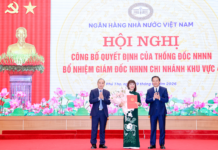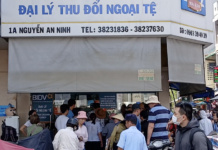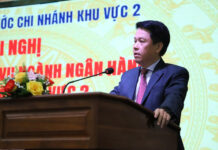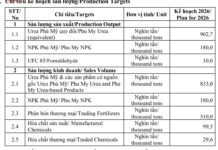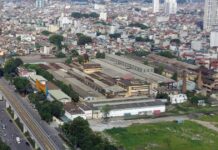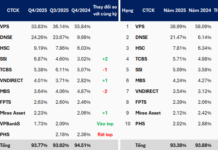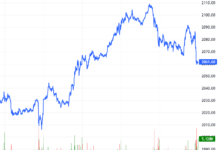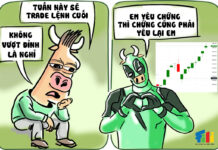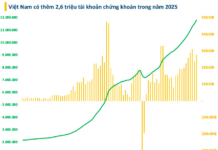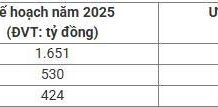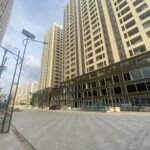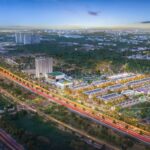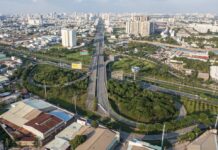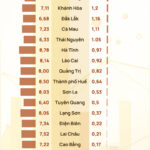Vietnam’s Government has recently issued Decree 291, which sets a provisional land use fee surcharge of 3.6% per year for cases where land prices have not yet been determined. This replaces the previous rate of 5.4%, aiming to alleviate financial pressure on businesses.
According to experts, even at the reduced rate of 3.6%, this surcharge remains unreasonable if the delay is not the fault of the business. This is particularly true given the current challenges many projects face in calculating land use fees.
Mr. Le Hoang Chau, Chairman of the Ho Chi Minh City Real Estate Association (HoREA), notes that many projects are struggling with the new regulations, which could force businesses to pay additional land use fees despite no wrongdoing. These issues primarily arise from delays in the state authorities’ issuance of land price decisions and land use fee notifications, processes over which businesses have no control.
In Ho Chi Minh City alone, approximately 100 projects are awaiting land use fee notifications from state authorities, including any potential surcharges. The new regulations have raised concerns among businesses about the “retroactive” nature of the fees and the increased financial burden.
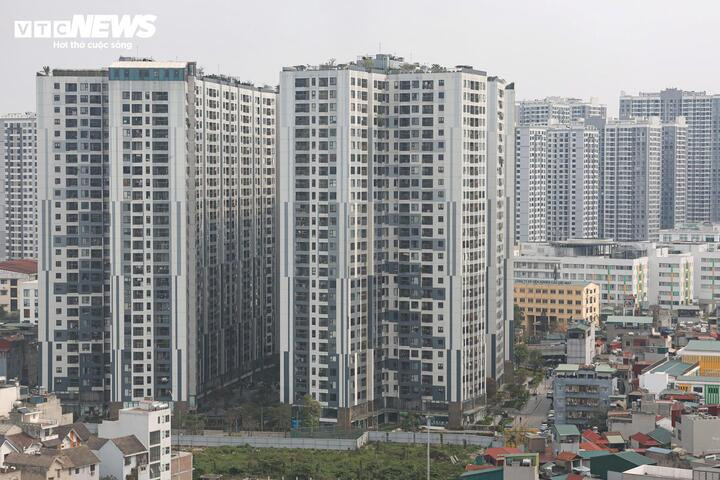
Experts suggest that additional land use fees should only be levied on businesses at fault. (Photo: Minh Duc)
Over the years, delays in issuing land price decisions and notifying land use fees for real estate projects, commercial housing, and urban areas have largely been the responsibility of local state authorities. “Businesses cannot intervene in the land pricing process or zoning adjustments, unless there is collusion or corruption, which would be dealt with according to the law,” Mr. Chau emphasized.
Therefore, he proposes that the National Assembly introduce new regulations exempting businesses from additional land use fees when they are not at fault. Under this proposal, businesses would not be required to pay surcharges if no fault was established at the time of the land price decision. If subsequent investigations reveal violations, the surcharge and late payment fees would then be calculated. Businesses that have already paid but are found not at fault could have the amount deducted from other financial obligations.
Additionally, Mr. Chau suggests implementing a fault exclusion mechanism and allowing deductions for amounts already paid to prevent unjust treatment of businesses, thereby fostering a more transparent and stable investment environment.
“The exemption from these fees aims to protect the legitimate rights and interests of investors in cases of policy or legal changes. Such regulations would positively impact the investment climate, particularly in attracting foreign direct investment (FDI) in the real estate sector,” Mr. Chau stressed.
Lawyer Nguyen Van Dinh from the Hanoi Bar Association also highlights the current policy’s paradox: while delays in land price determination are the responsibility of state authorities, the financial burden falls on developers.
Although the 2024 Land Law has addressed some legal bottlenecks for real estate projects, Mr. Dinh believes it still falls short of ensuring fairness for land users if the provisional land use fee surcharge remains in place.
“Land pricing involves a series of steps—from selecting consultants to issuing land price decisions and notifying land use fees—all conducted by state authorities. The outcome is an administrative decision that land users must comply with. Businesses and individuals have no involvement in this process and thus should not be held responsible for delays in land pricing,” Mr. Dinh explained.
Furthermore, Mr. Dinh notes that land laws clearly state that land prices are determined at the time the state authority issues the land use rights decision.
“Delays in land price determination are the responsibility of state authorities and officials, partly due to previous land laws lacking a timeframe for pricing. Specifically, there was no requirement for land pricing to be completed within a maximum number of days after the land use rights decision was issued,” Mr. Dinh concluded.
Businesses Bear Unreasonable Costs
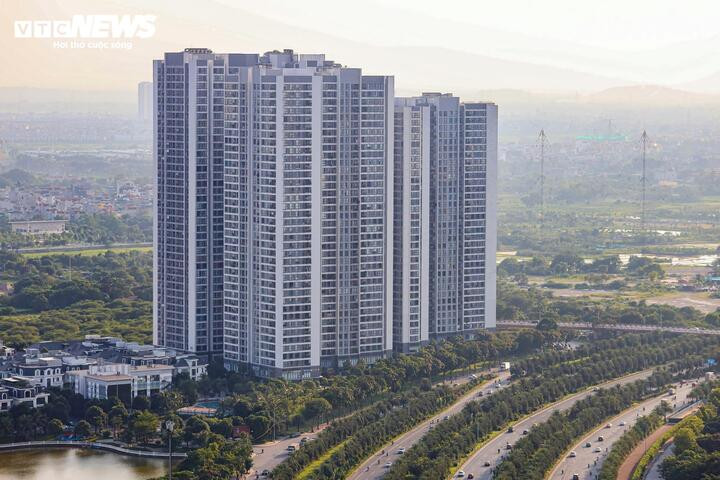
Businesses continue to bear unreasonable costs. (Illustrative photo: Minh Duc)
From a business perspective, Mr. Vu Cuong Quyet, CEO of Dat Xanh Northern Region, argues that the additional land use fees impose unjustifiable costs on businesses.
Mr. Quyet explains that when a project is allocated land, the developer must invest in land clearance and infrastructure before the land use fee is determined. Until then, the project cannot sell units or enter the market. Despite having no revenue, developers incur significant costs such as land clearance expenses and loan interest.
Many projects take 3 to 5 years to receive land use fee approvals, forcing businesses to bear substantial costs. With the 3.6% annual surcharge, even when the state has not set the land price, businesses face additional financial strain.
“Delays in land price decisions by the state force businesses to wait and incur extended investment costs, which is the initial harm. Now, with the 3.6% surcharge, businesses face yet another unreasonable cost,” Mr. Quyet pointed out.
To illustrate, Mr. Quyet cites a Hanoi project with a land tax of approximately VND 500 billion for 500 apartments. Typically, it takes about 4 years to approve the land use fee, resulting in an additional VND 70 billion (14.4% of the total tax).
“Land prices are adjusted annually, making cost planning and capital allocation challenging for businesses. These additional costs will be passed on to buyers, who may end up paying at least 15% more than they should,” Mr. Quyet emphasized.
Therefore, Mr. Quyet suggests that if the state has not determined the land price, businesses should not be charged late payment fees during this period.
Mr. Pham Duc Toan, CEO of EZ Property, agrees: “Land pricing is the state’s responsibility, not the business’s. Charging businesses additional fees for undetermined land prices is like penalizing them for something beyond their control.”
He provides an example of a project with a land use fee of VND 100 billion. If the state takes a year to determine the fee, the business incurs a VND 3.6 billion penalty, despite already spending heavily on land clearance and bank loans.
“The responsibility for penalties should be accurately assigned. If the state delays, businesses should not bear the cost. If businesses delay, the tax authority already imposes a clear penalty of 0.03% per day,” Mr. Toan noted.
Unlocking the Golden Demographic: Why Youth Empowerment is Key to Transforming Potential into Power
Vietnam’s Deputy Prime Minister, Bùi Thanh Sơn, highlights the country’s fortunate “golden population structure,” but warns that this demographic advantage will not automatically translate into “golden thinking” or “golden capabilities” unless the younger generation proactively strives to keep pace with the evolving trends of the modern era.
Housing Fund: Success or Failure Hinges on Implementation
The National Housing Fund is a proven model that has demonstrated remarkable success in Singapore and South Korea.
Smart Cash Flow: Relaxed Investing, Sustainable Returns with Homie City
The 2025 real estate market signals a return to cautious investment strategies, with investors prioritizing densely populated residential areas, transparent legal frameworks, and genuine demand. This shift explains why Homie City in Vạn Xuân, Phổ Yên (Thái Nguyên) has emerged as a standout choice in a highly fragmented market.






